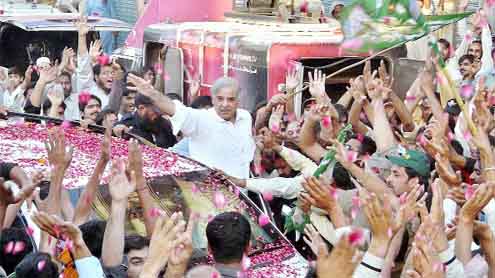 A leading Scotland official has rejected claims that photos detailing the shocking onditions inside the athletes’ village at the Commonwealth Games were not authentic.Disturbing images of dirty bathrooms and unfinished building work were broadcast around the world by BBC Sport only a few days before competitors were due to start arriving in Delhi.Organising committee chairman Suresh Kalmadi dismissed the relevance of the photos, insisting they were of servants’ quarters, not areas that were used by competitors.However, Michael Kavanagh, chairman of Commonwealth Games Scotland, told BBC Sport: “There is no staff accommodation in the village. It simply doesn’t exist.”That accommodation was intended for athletes and is actually currently being used by athletes as it was cleaned up eventuallyThe pictures, showing dirty sinks, shower cubicles, toilets and bed linen as well as exposed wiring and flooding outside the buildings, were taken a few days before teams were due to arrive.They were taken by team officials appalled by the state of the accommodation being offered to them.Numerous countries had registered their unhappiness over the condition of the village, with several delaying their journey to India so work to rectify the problems could be completed.Scotland even claimed their living space was “unsafe and unfit for human habitation”, while Commonwealth Games Federation president Michael Fennell admitted the village was not fit for occupation.But Kalmadi, who has been criticised for his handling of the Games, insisted the rooms pictured had been intended for the use of staff not athletes.
A leading Scotland official has rejected claims that photos detailing the shocking onditions inside the athletes’ village at the Commonwealth Games were not authentic.Disturbing images of dirty bathrooms and unfinished building work were broadcast around the world by BBC Sport only a few days before competitors were due to start arriving in Delhi.Organising committee chairman Suresh Kalmadi dismissed the relevance of the photos, insisting they were of servants’ quarters, not areas that were used by competitors.However, Michael Kavanagh, chairman of Commonwealth Games Scotland, told BBC Sport: “There is no staff accommodation in the village. It simply doesn’t exist.”That accommodation was intended for athletes and is actually currently being used by athletes as it was cleaned up eventuallyThe pictures, showing dirty sinks, shower cubicles, toilets and bed linen as well as exposed wiring and flooding outside the buildings, were taken a few days before teams were due to arrive.They were taken by team officials appalled by the state of the accommodation being offered to them.Numerous countries had registered their unhappiness over the condition of the village, with several delaying their journey to India so work to rectify the problems could be completed.Scotland even claimed their living space was “unsafe and unfit for human habitation”, while Commonwealth Games Federation president Michael Fennell admitted the village was not fit for occupation.But Kalmadi, who has been criticised for his handling of the Games, insisted the rooms pictured had been intended for the use of staff not athletes.
“Those [rooms] were not used for the Games at all,” Kalmadi told BBC sports news correspondent James Pearce. “There were photographs of toilets. They were the toilets for use in the servants’ quarters, not the Games village. We were not using those.”We had extra rooms in any case. Some blocks which were bad we did not accept. Those were not used for the Games at all.”They were not the correct pictures. You go to the Games village now you will find what lovely bed sheets they have got.”You see the number of international shops that are there. They are all enjoying themselves in the village and they are very happy with the hygiene and cleanliness there.”
Fears over the standard of accommodation for the athletes contributed to a fraught build-up to the Games in which concerns were raised over stadium safety and security.
In the fortnight before the opening ceremony, two Taiwanese tourists were injured after gunmen on a motorcycle opened fire on a bus in Delhi, a pedestrian footbridge to the centrepiece Jawaharlal Nehru stadium collapsed – injuring 23 people – and part of a false ceiling at a weightlifting sports venue fell down.Top athletes, including English triple-jumper Philips Idowu, pulled out on the eve of the competition, while Scotland, Canada and New Zealand all delayed their departures to the Games until they received reassurances over the state of the village and security.
“There was so much negative publicity, I really thought some countries might not come,” stated Kalmadi. “I really appreciate all the countries having such great faith in India that they all came.”
But despite a full quota of competing nations, problems have continued to blight aspects of the Delhi Games.The track at the Jawaharlal Nehru Stadium had to be hastily repaired after it was damaged during the opening ceremony, while an outbreak of a stomach illness among swimmers was initially linked to the water in the pool before tests proved its quality was up to standard.Kalmadi went on to play down the numbers of empty seats at Delhi venues during the first few days of the Games and claimed this was normal in the early stages of international sports events.”The first few days things are just warming up, people don’t go to the stadia,” he added. “Nothing went wrong with the ticketing. It’s only when Indian medals started rising the whole process started picking up and now we’re getting packed houses.”Kalmadi rounded off his defence of Delhi 2010 with the assertion that Indian organisers have set a standard that Glasgow may struggle to match when the Scottish city hosts the next edition in 2014.”The scale we have had in India, it may be hard for them to repeat,” said a belligerent Kalmadi – Bbc











